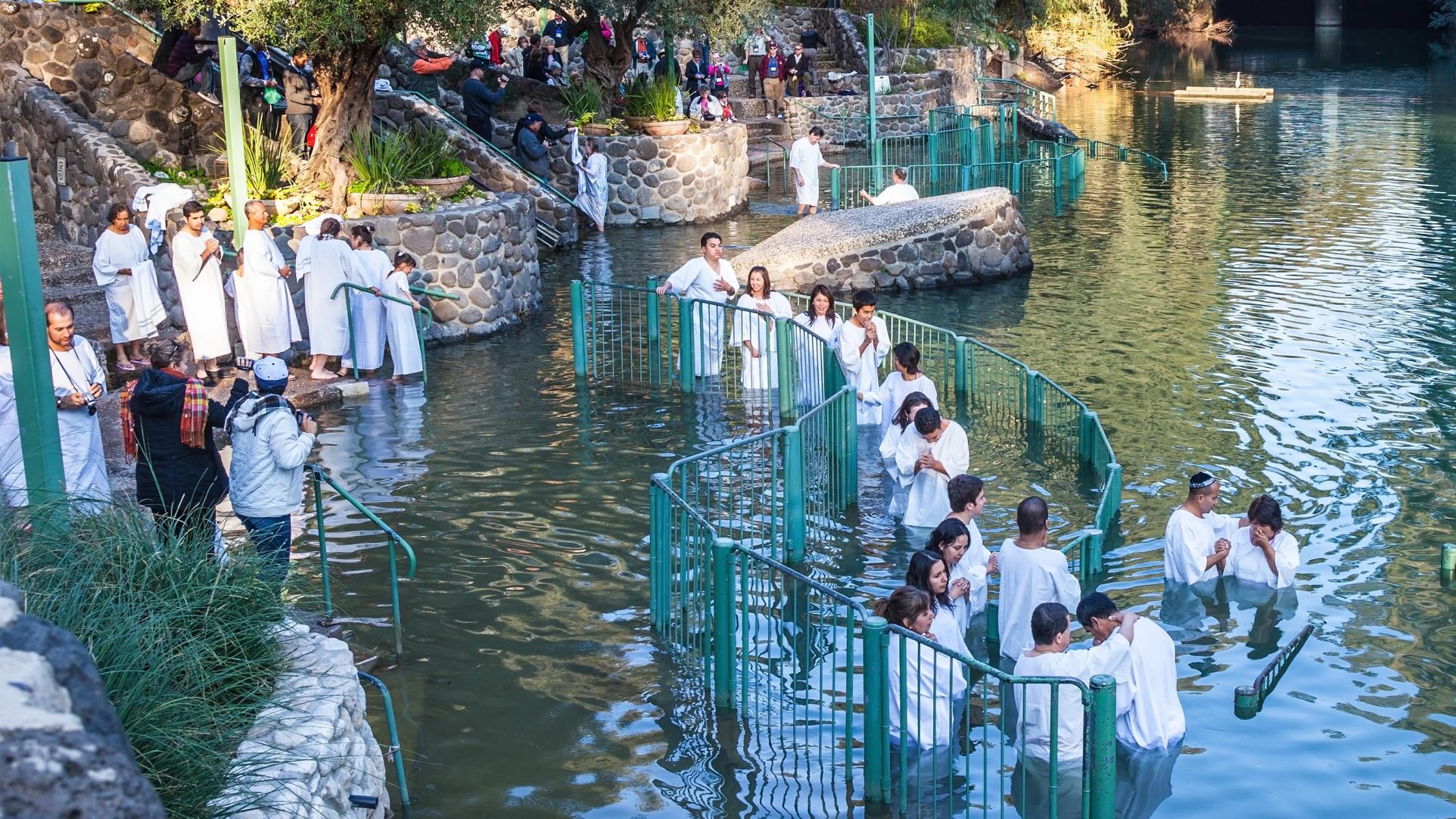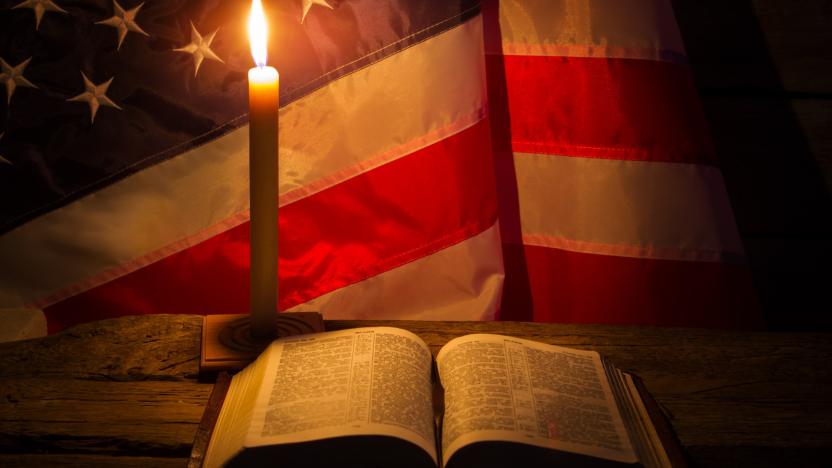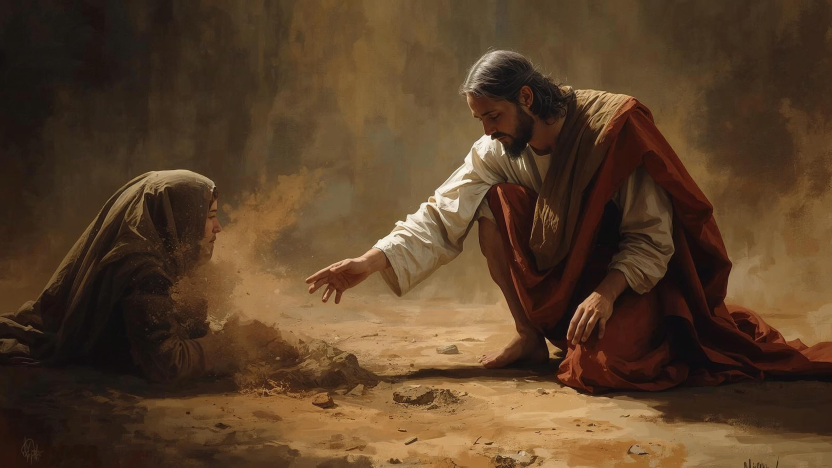"Therefore, when the Lord knew that the Pharisees had heard that Jesus made and baptized more disciples than John (though Jesus Himself did not baptize, but His disciples), He left Judea and departed again to Galilee."
John 4:1–3)
The origins of the Christian practice of baptism are not fully understood, but apparently the Pharisees took offense at rumors of Christ baptizing followers. Much of the reason for their offense may have been because the religious leaders and temple workers of Jesus' day considered a very similar rite to be their exclusive privilege — the rite of priestly cleansing.
In the wilderness tabernacle, built by the Children of Israel, God's design required a basin to be included for the high priest and his sons to wash their hands and feet before ministering (Exodus 30:18–20). Though the tent tabernacle was replaced by Solomon's temple, the essential design remained the same, including the ritual wash basin. Solomon's foreign bronze-smith Hiram created the new basin large enough to hold 12,000 gallons (1 Kings 7:23–26, margin), about as much as a backyard swimming pool. Next to the basin, at the entrance to the Holy Place, Hiram constructed two large pillars which he named with the Hebrew names Jakin and Boaz. Jakin, meaning "He shall establish" and Boaz, meaning "in it is strength." These names together mean "He shall establish in strength," an expression of the Jewish belief that God would permanently establish His temple in Jerusalem.
Unfortunately the wish would not come true. Solomon's temple and Hiram's handiwork were destroyed in the Babylonian conquest of Jerusalem. The temple was not established in strength after all. Even after Herod the Great undertook a massive construction project to rebuild the temple, complete with a new pair of bronze pillars, the Jews were hard pressed to forget that the building itself was not nearly so permanent as they hoped. If anything was established in strength, it had to be something else. Perhaps it was the Jewish nation, perhaps the Jewish religion. Perhaps, especially to those who ministered in the temple, what God had actually established so firmly, was the priesthood.
While the Pharisees hated to see Jesus gaining followers, John the disciple also links the controversy to baptism. It certainly would have reminded the religious leaders of the ritual washing undertaken by the priests in the temple. It would have chafed them to see it profaned by commoners dunking in a river, rising up to claim that their sins had been washed away. That was the role of the priestly caste. Though John the Baptist was a Levite, he did not serve as a priest in the temple. He was outside the religious structure prescribed by Moses. If the Pharisees could have called John an apostate without fear of the people, no doubt they would have.
Every baptism there at the Jordan carried with it images of the temple services, from repentance and sacrifice to washing. Even the names of the two bronze columns, two names that form a promise: He establishes in strength. That promise hung over every baptism. Each new believer is established by God. He or she is established more firmly than Solomon's temple, more firmly than Herod the Great's, more firmly than the entire priestly caste and the nation of Israel. That promise hung over the baptism of Christ and it is present for us as well. It is in part why the apostle Peter sees God's people as a new priesthood, writing, "but you are a chosen generation, a royal priesthood, a holy nation, His own special people, that you may proclaim the praises of Him who called you out of darkness into His marvelous light” (1 Peter 2:9).
Call to Action
What repentance do you feel called to? Do you hear the echoes of John the Baptist at the Jordan urging anyone who will listen to prepare for the coming Messiah? What in your life do you know isn't right and needs to change? How can you humble yourself, repent, and ask for God to establish you in His strength? He is ready to. Are you?
All scripture taken from the New King James Version®. Copyright © 1982 by Thomas Nelson. Used by permission. All rights reserved.




